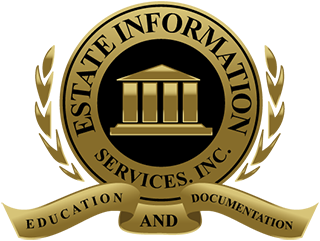How Do I Plan My Estate?
Estate planning is a critical step that everybody should take at some point during their life because, whether or not they are consciously aware – you have an estate. If you own a house or a car – then you have an estate. If you have money in a bank account – whether it’s a few thousand dollars a lot more – than you have an estate. Many people often consider estate planning to be something that only the very wealthy have to even consider, but this is a folly. Estate planning can benefit everybody, despite how much wealth they have. A few key things that are in your estate can include real property, bank accounts, life insurance policies, all of your personal belongings such as artwork, furniture, or electronic devices. Essentially, however, an estate can be anything that you wish to pass on to another person.
If you want to seamlessly hand off what you have set aside to another person after you’ve died, however, an estate plan can dramatically smooth out the process for you and your heirs. No matter who you choose to be a beneficiary, you want them to receive their inheritance in a timely manner – whether so they can fill a void left by your absence, or so they can take care of any outstanding bills that may have been left behind. For many, the primary reason to write out their estate plan is so that they can help avoid a costly legal battle for those family members who are being left behind.
As you sit down to plan out your estate, there a few key factors that you can consider. Several of them will look different from person to person, but every good estate plan has some variation of these aspects.
- Have a living will written.
- Having a living trust written.
- Establish a guardian for any dependents you have.
- Name an executor and a trustee.
- Create or update the beneficiaries for life insurance policies, retirement accounts, and stocks.
- Choose somebody to act as your durable power of attorney.
- Choose somebody to act as your medical durable power of attorney.
With an estate plan, like practically every other thing that involves money, there are taxes involved – but through careful planning, you can minimize the impact. The simple, unavoidable fact is that everybody will die sooner or later, and by having a plan in place, you can protect your family and your estate so that it can be passed on to the next generation. Taxes are as inevitable as death, but there are many ways to limit their effect on your estate as it passes from you onto your heirs – that is part of what planning an estate is and is perhaps one of the most critical aspects. All that is required to be prepared is to write out a plan in advance, naming whom you want to receive your belongings. It can be as simple or as complex as you want, include as many belongings as you want, and name any heirs that you want.
However, a good estate plan will be much more than who receives your valuables. You could pass along your hopes and expectations for how your children live their life – whether this be the type of religion they follow, the career they choose, or even the type of education they receive. You can also lay out how you want your heirs to handle your estate, in order to help it last for as long as possible. You can stipulate what actions can, should, or should not be taken if you are incapacitated, but not dead. You can list out a set of Guardians for your heirs, should the worst happen, and you die before they reach the age of majority, which should include further instructions for the person who is named as guardian, in order to ensure your heir is given everything that you believe they need.
You know your children better than most, and that means you know how fiscally responsible they are. Your estate plan can have contingencies set in place in order to help those heirs who you know to be fiscally irresponsible – such as how much they can withdraw from your estate, or if they even can withdraw from it by themselves, so that it stretches out for as long as possible. Provide care, aid, and attendance for a family member that has special needs, that would not disrupt any government benefits. It can include a life insurance policy, transfer of business interests, and even pass on real estate while in the process diminishing any taxes, court costs, or other legal fees that are not necessary. Clearly, all of this is information that cannot be known at any given moment, and that is why it is strongly suggested that a good estate plan is revisited often, in order to reflect any changes in your life that might not have existed at the time of the previous draft.
Because people associate an estate with the wealthy, many think that it is not for them, but it is. Just as everybody has some sort of estate, everybody should have a plan for that estate set up as early as possible. Life happens, and it will not wait for anyone – setting up an estate plan early can save a lot of hardship later on. By setting up your estate plan early, you can revisit it again and again throughout your life, as you acquire or lost assets or wealth, as the laws of the land change, or when certain heirs no longer apply for one reason or another. Just because you don’t have an estate plan does not mean that the state lacks a plan. The state has defined laws, rules, and regulations relating to the estates of deceased persons – these details vary from state to state and can incur taxes, legal fees, and other costs that can negatively impact your estate and your family.
The first step to making an estate plan is either a living will or a living trust, and both are important for different reasons – the former can allow for certain medical decisions while the latter is better at protecting your assets after your death. Whether you do one or both, it is important that any and all documents, pertaining to the handling of your estate after your death, do not contradict one another in any manner. All it takes is for one document, such as a pension plan, to conflict with a living trust as to who will receive it upon one’s death, for the entire process to be opened up to the courts and put your entire estate in contention between all possible heirs. This is easily avoided. Ensure that all documentation is line with each other, regarding beneficiaries and how the law determines inheritance in your state and any other states that might affect your estate. A living trust that is properly set up can minimize any taxes that your heirs will have to pay, entirely eliminate legal fees, and allow for your estate to be handed out to your heirs as you see fit. In the end, planning your estate is an easy process, and it can be made simple with a little research, careful thought and planning, and time to reflect.



